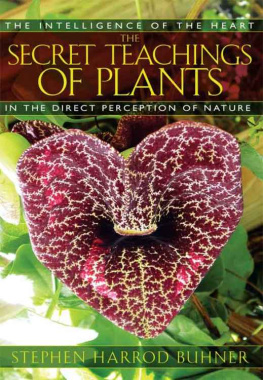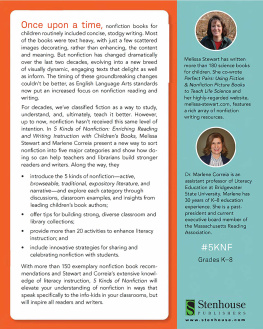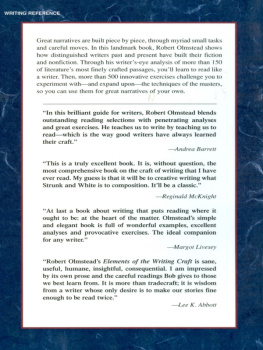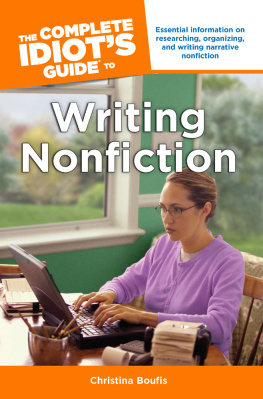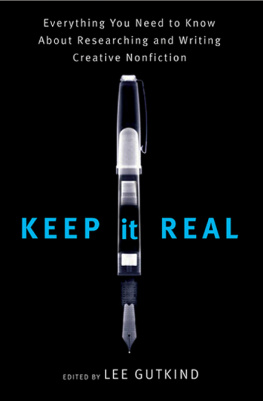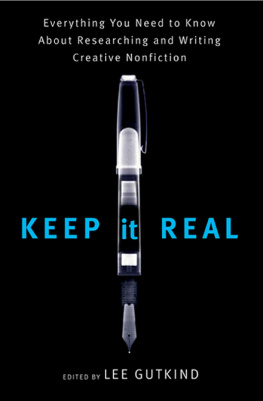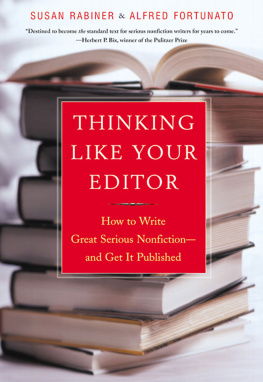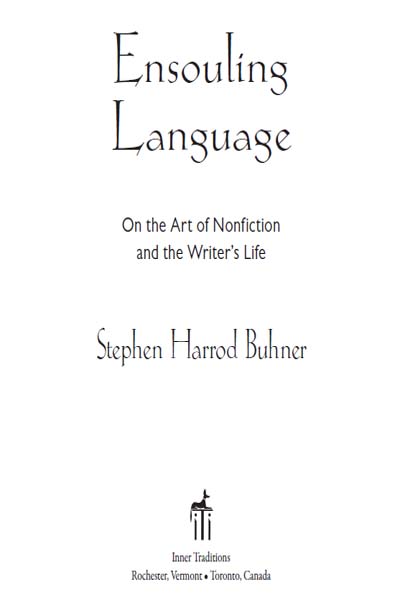Stephen Harrod Buhner - Ensouling Language: On the Art of Nonfiction and the Writers Life
Here you can read online Stephen Harrod Buhner - Ensouling Language: On the Art of Nonfiction and the Writers Life full text of the book (entire story) in english for free. Download pdf and epub, get meaning, cover and reviews about this ebook. year: 2010, publisher: Inner Traditions, genre: Art. Description of the work, (preface) as well as reviews are available. Best literature library LitArk.com created for fans of good reading and offers a wide selection of genres:
Romance novel
Science fiction
Adventure
Detective
Science
History
Home and family
Prose
Art
Politics
Computer
Non-fiction
Religion
Business
Children
Humor
Choose a favorite category and find really read worthwhile books. Enjoy immersion in the world of imagination, feel the emotions of the characters or learn something new for yourself, make an fascinating discovery.

- Book:Ensouling Language: On the Art of Nonfiction and the Writers Life
- Author:
- Publisher:Inner Traditions
- Genre:
- Year:2010
- Rating:3 / 5
- Favourites:Add to favourites
- Your mark:
Ensouling Language: On the Art of Nonfiction and the Writers Life: summary, description and annotation
We offer to read an annotation, description, summary or preface (depends on what the author of the book "Ensouling Language: On the Art of Nonfiction and the Writers Life" wrote himself). If you haven't found the necessary information about the book — write in the comments, we will try to find it.
Shows how nonfiction, especially how-to and self-help, can take on the same power and luminosity as great fiction
Develops processes to reliably induce the dreaming state from which all writing comes
Teaches the skill of analogical thinking that is the core perceptual tool for writers
Explores the subtle techniques of powerful writing, from inducing associational dreaming in the reader, to language symmetry, sound patterning, foreshadowing, feeling flow, and more
Approaching writing as a sacred art, Stephen Buhner explores the core of the craft: the communication of deep meaning that feeds not just the mind but also the soul of the reader. Tapping into the powerful archetypes within language, he shows how to enrich your writing by following golden threads of inspiration while understanding the crucial invisibles essential to the art of both fiction and nonfiction: how to craft language with feeling and vision, employ altered states of mind to access the writing trance, clear your work by recognizing the powerful sway of clichd thinking and hidden baggage, and intentionally generate duende--that physical/emotional response to art that gives you chills, opens up unrecognized aspects of reality, or simply resonates in your soul. Covering some very practical aspects of writing such as layering and word symmetry, the author also explores the inner world of publishing--what you really will encounter when you become a writer. He then shows how to develop a powerful and engaging book proposal based on understanding the proposal as a work of fiction--the map is never the territory, nor is the proposal the book that it will become.
This book, written using all the techniques discussed within it, offers a powerful, experiential journey into the heart of writing. It does for nonfiction what John Gardners books on writing did for fiction. It is one of the most significant works on writing published in our time.
Stephen Harrod Buhner: author's other books
Who wrote Ensouling Language: On the Art of Nonfiction and the Writers Life? Find out the surname, the name of the author of the book and a list of all author's works by series.

